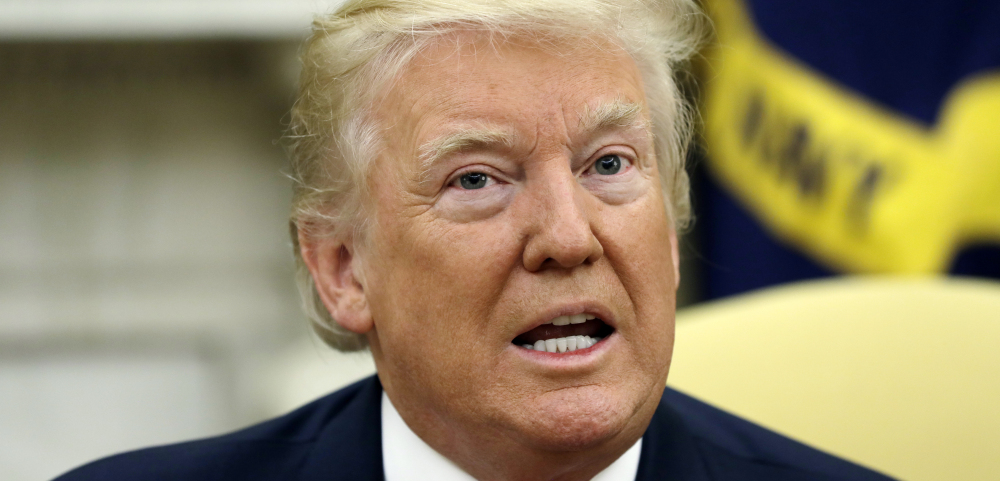As President Trump threatens to allow the Affordable Care Act insurance marketplace to “implode,” he seems oblivious to the fact that he is the one holding the detonator.
The negotiator in chief, whose push to dismantle the ACA is already increasing premiums, is warning Congress to pass a horrible health care bill, or else he will stop making payments to insurance companies that allow for affordable health care for millions of Americans. That’s like a doctor refusing to treat a broken leg unless the hospital gets a new coat of paint.
Fortunately, Congress sees the pointlessness in such a strategy, and is preparing to send out its own ambulances.
At issue is the ACA requirement that insurers offer comprehensive plans with deductibles and co-pays artificially reduced so that they are affordable to Americans who earn between 100 and 250 percent of the federal poverty level, or up to about $30,000 for an individual.
To offset these cost-sharing reductions, the federal government makes direct payments to the insurers.
That part of the ACA was created by executive rule-making, not an act of Congress, so Trump can decide unilaterally not to make the payments, the next of which is due Aug. 21.
Following through on that threat, though, would do great harm to the insurance market, particularly in states like Maine that have not expanded Medicaid, and therefore have more poor residents using insurance through the ACA exchanges.
If Trump stops the payments, insurance companies offering plans through the exchanges would either raise premiums to account for lost funding, or leave the market altogether.
The Kaiser Family Foundation estimates that premiums would rise an additional 19 percent on average, and 21 percent in states that have not expanded Medicaid, or MaineCare as it is known here.
The increases would have to be absorbed by individuals whose income is too high to qualify for premium subsidies through the ACA, provided they don’t drop insurance altogether.
For those who do qualify for subsidies, the government would have to increase the amount of each subsidy to match the premium. Kaiser estimates that this would cost an additional $12.3 billion, while stopping the cost-sharing reduction payments would save only about $10 billion.
Trump’s comments already have created uncertainty for insurers and caused insurance premiums to rise. But because insurers in most cases cannot immediately change plans or drop out of the market, the damage from stopping the cost-sharing reduction payments would take some time to fully develop.
In that time, Congress could step in to put the payments in law, taking their fate out of Trump’s hands. The Republican Senate chairman of an important health care committee already has urged Trump to maintain the payments, and his committee will start work in September on stabilizing the ACA market.
Two Republican House members said last week that it is imperative they work with Democrats to fund the payments as part of a bipartisan fix. “It’s clear to us that what we have to do is come together, find that common ground and govern for the American people,” said Rep. Tom Reed, R-N.Y.
Maine Sen. Susan Collins agrees. On “Meet the Press” on July 30, she said that the Trump administration threats are actively destablizing insurance markets, calling the payments “vital assistance” to low-income Americans.
It’s likely that Trump’s threats, made from a place of ignorance on health care policy and governance in general, are meant to scare Senate Republicans into passing the health care bill that Collins helped kill.
But any damage done by the president’s comments or actions does not reflect poorly on the Affordable Care Act, and it does not warrant the acceptance of a bill that would decimate health coverage for millions.
It’s time for Congress to stabilize the insurance market, and take the detonator out of Trump’s hands.
Send questions/comments to the editors.


